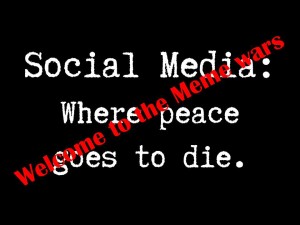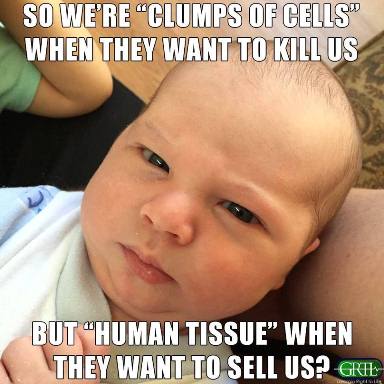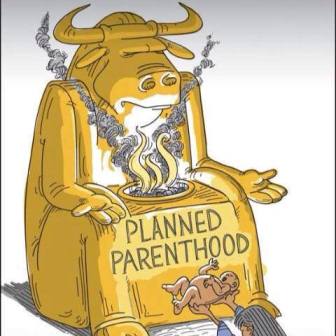 If I had to describe my rather short life on social media, I would depict the bulk of it as “THE MEME WARS.” Since you are reading this online, I doubt I have to explain to you that memes are those pictures that people post with snappy little sayings on them that range from being vulgar to sarcastic to sentimental. One might also call social media “The House of Flying Blogs.” Where those provoked by any number of issues pass around articles that deliver devastating blows to the ideological self-defense mechanisms of their political, religious, or social opponents. It is the place where peaceful existence goes to die, and where “offense—counter-offense” has replaced, knit one, pearl two.
If I had to describe my rather short life on social media, I would depict the bulk of it as “THE MEME WARS.” Since you are reading this online, I doubt I have to explain to you that memes are those pictures that people post with snappy little sayings on them that range from being vulgar to sarcastic to sentimental. One might also call social media “The House of Flying Blogs.” Where those provoked by any number of issues pass around articles that deliver devastating blows to the ideological self-defense mechanisms of their political, religious, or social opponents. It is the place where peaceful existence goes to die, and where “offense—counter-offense” has replaced, knit one, pearl two.
I mean this in the most understanding way possible, because I have spent my short time here as active as anyone in memes, blogs, articles, and debate (if one can call the nature of online discussion debate[1]). I understand and am emotionally sympathetic to the banter, indignation, and desire to influence, to correct, to set straight the obvious confusion of so many. After all, should Christians abandon social media to the clutches of non-Christians?[2] Should we not respond to the meme wars with memes of our own? If so, what kind? If not, why not? If not, what else should we be doing on here?
Now we have a serious theological issue confronting the church… and the scramble to deal effectively with spreading and deepening secularism is pushing us to it. Secularism is, after all, a relative new comer on the global stage.
What is the role of the church in society?
Religion haters want to drive us into extinction, we get that… but we also have a battle within the church over this question. It would be nice if those on each side of the church’s battle had a little sympathy with the pain and frustration that everyone on every side is experiencing… but, I’m sure that would be too much to hope.
Does the church have a responsibility to stand as a bulwark against moral and ethical corruption in society at large? If so, how? If not, what IS our responsibility as church? If so, how can one balance the tension between societal and personal challenges? How do we navigate the land between the extremes of being “criminally” offensive (I Corinthians 14: 20-25) and being so inoffensive that we make no impact? (James 4:4)
Are we a church in exile, divorced from the goings on of the community at large, quietly nestled in our loving and welcoming bushes picking off stragglers for Jesus? (Wow… that was a biased way of wording that… hinting at my present leanings.) Are we called to preach love alone and allow conviction of sin to rise spontaneously from some other source?
I’ve heard things like, “Sinners sin, that’s what they do. We shouldn’t get all worked up about it, or go around trying to keep them from it, but should merely preach the love of God to them. Nobody can live the Christian life without being empowered by the spirit so we shouldn’t even bother with law and commanding self-restraint.”
Many on this side see the state of the early church as their model, mistaking, I believe, the early church’s navigation of their situation, for the purpose and plan of the church in general, confusing the circumstances of the mustard seed for the mission of the mustard plant.
Or, are we called to keep high moral and ethical standards as an ever present witness to right and wrong amid those naturally inclined to wander aimlessly? Is law a tutor to bring the sinner to Christ or not? If so, how? Is the mirror of God’s word, saying “Look at yourself, your failure, your danger, your need,” (Romans 7:7-25) an important element of gospel witness or is “God loves you and wants a relationship with you,” enough? (John 3:16) Many on this side are accused of mistaking America for “Kingdom of God” and a type of replacement theology that confuses t he USA with the ancient Israelite covenant people… some do, no doubt, but not all.
he USA with the ancient Israelite covenant people… some do, no doubt, but not all.
Are we, here in the Unites States, a “church in exile” or are we “prophets in Israel”? (No, I don’t think the USA has replaced Israel… I’m being metaphorical of a dynamic.) Is there a third model that one might call, “Israel as a light to the nations”?
Does the church have an obligation to be a witness for right and wrong in the world or should we leave society in the hands of the godless while we whisper love in the ears of those rendered rudderless by the lack of any moral compass in society?
Are Christians wrong to post memes like the ones linked here, because they offend the sensibilities of those we are called to love for Jesus? …or are we right to post memes like this because they provoke the morally challenged to confront their soul’s morass, raising awareness of sin, preparing the heart for the seed of the gospel? Indeed, should we post them because they might spare many lives, and keep others from self-destruction while their years and gospel opportunities mount? Are they really a waste of time, as many imagine?
Can a person come to Christ without an awareness of sin and without repentance?
If not… Is repentance a psychological/spiritual response to holiness, failure, spiritual danger and offensiveness? Or, is repentance a psychological/spiritual response to “being loved unconditionally” by God? Are both necessary?
Can the prodigal son have relationship with the father he has betrayed and abandoned without “coming to himself,” without saying in his heart, ‘Father, I have sinned against heaven and before you. I am no longer worthy to be called your son.’? ( Luke 15:21)
Luke 15:21)
If not… then how does the church, how do Christians, best see this accomplished in the hearts of individuals? What role, if any, does a more general and public struggle against wickedness and moral and ethical corruption play in setting up individuals for a reception of the gospel when they hear it? Does a Torah rich society result in more salvations? Does the diminishment of the depth and spread of human evil benefit more and lead to “easier,” or more effective, discipleship?
You can tell my leanings, but this is an honest appeal for each of our hearts to find clarity on the matter.
We need to answer this question scripturally, not emotionally… though all our emotions will be provoked by the discussion, filling our minds and conversations with anecdotal visions of the ramifications of the other side’s perspective. As with political leanings, people tend to have a vision of reality that shapes the rest of their engagement of issues. We, however, need to allow as honest a contemplation of the matter from the whole Bible (Not just our favorite parts), as possible. We need to untangle many practical elements involved in our particular situations, be they personal or societal.
This means wrestling with our personal presence on social media and the meme wars, too.
[1] While it is popular among those who think the church should get off social media to claim that online discussion changes nothing and help no one… I think we should gather empirical evidence before dismissing this mode of engagement altogether. Anecdotal evidence doesn’t count for anything but a self-validation of one’s own visionary starting point. Do pages like Franklin Graham’s or Ravi Zechariah’s, help people? Do pastor sites help people? Does online discussion help people in the long run, even if the first reaction is self-defensive. Those who only want peace peace peace… nothing but endless peace, will always say NO! That is not a good enough answer, however, to try to force millions of Christians to silence themselves on social media.
[2] I hope you appreciate the carefully chosen word “clutches”… it is a word loaded with emotional content that I brought to bear in the question, seeking to bias the reader to my emotional perspective.
Discover more from Biblical Literacy with Dr. Andrew D. Sargent
Subscribe to get the latest posts sent to your email.


